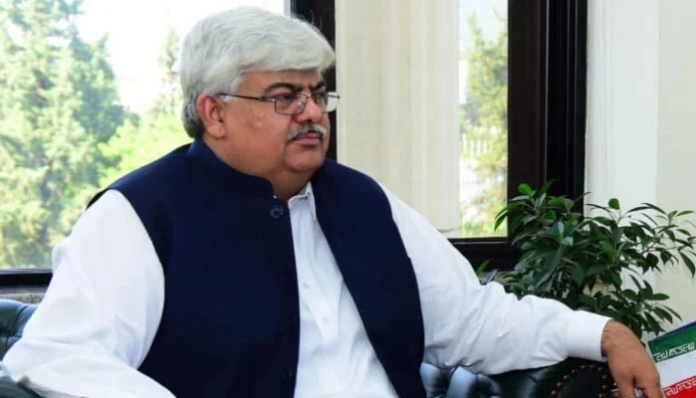ISLAMABAD, JULY 10 (DNA):Federal Board of Revenue (FBR) Chairman Rashid Mahmood Langrial has assured the Senate panel on Wednesday that the tax authority is not being used to target politicians.
“I assure the committee that there is no political victimisation and we have never received any order from high-ups on such kinds of actions. Politician interference has been stopped in the FBR,” he said.
The Senate Standing Committee on Finance and Revenue was chaired by Senator Saleem Mandviwalla, in Islamabad on Wednesday.
Highlighting alleged harassment of senators by FBR officials, Senator Afnanullah Khan stated that a notice had been issued to an IT company registered under his name. He underlined that the FBR demanded income tax on a project that was not completed due to COVID. The FBR chairman assured the committee of a prompt resolution, stating that the matter would be thoroughly examined without delay.
Senator Afnanullah charged that a tax official of the Corporate Tax Office Islamabad had made a wrong case against his IT company. The FBR chairman responded that if the tax official was found guilty, he would be punished and prosecuted. Senator Mohsin Aziz said it was a fact that many cases were reopened against the taxpayers.
The committee also discussed a complaint accusing the FBR of illegal distribution of money among cadre officials of the Inland Revenue Service and Pakistan Customs. The FBR chairman informed that the Board had initiated a “Digital Performance Management Regime” in which the performance of an officer is anonymously reviewed by 45 peers, and officers attaining outstanding performance are being rewarded.
The government has decided to review Pakistan Remittances Initiative (PRI) — a crucial scheme for bringing remittances through formal channels, as pay-out increased by around four times while remittances by around two times during the last 10 years.
Additional Secretary Finance Amjad Mehmood, while briefing the Senate panel, said that Finance Ministry took a summary into the Economic Coordination Committee (ECC) of the Cabinet and sought approval for reviewing PRI scheme. Following ECC’s approval, the cabinet has also directed for reviewing the scheme.
The Senate panel chairman said remittances were around $19 billion 10 years back, which now had reached over $36 billion i.e. almost doubled. However, the pay-out under the scheme was around Rs20 billion which has now reached around Rs130 billion.
Hussain said that the scheme was crucial for bringing remittances through formal channels. He said that eligible transaction limit has been increased from $100 to $200.
While discussing the delay in enforcement of local currency settlement, the committee chairman reiterated that commercial banks issue Visa and MasterCard, who earned around $300 million from the country, without providing an option of PayPak. He opined that all local debit cards should be linked to PayPak. The committee recommended that commercial banks should give an option of PayPak on the form at the time of issuance of debit cards.
The committee was informed that as of March 2025, of the 53 million debit and credit cards in Pakistan, about 10 million are PayPak and 2.5 million co-badged, while the rest are owned by Visa and MasterCard.
The SBP informed the committee in writing that Visa/MasterCard/Union Pay, etc., are international payment schemes that offer card services all over the world. These schemes were established decades ago and offer many services such as online and shop-based payments. A large global network of merchants is connected with the platforms of Visa/Master for accepting in-store and online payments.
The SBP has undertaken various measures to reduce the country’s reliance on these international card schemes and to promote cost-efficient, local currency-based payment instruments. Co-badging arrangements with international networks are also under development to allow broader use cases, including international and e-commerce transactions.
While pricing structures of Visa/MasterCard are governed by bilateral commercial arrangements between banks and payment schemes, the SBP continues to provide strategic direction and oversight to promote fair competition and to lower the cost of digital financial services.

















